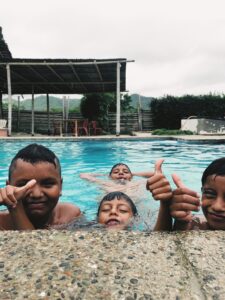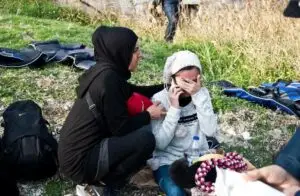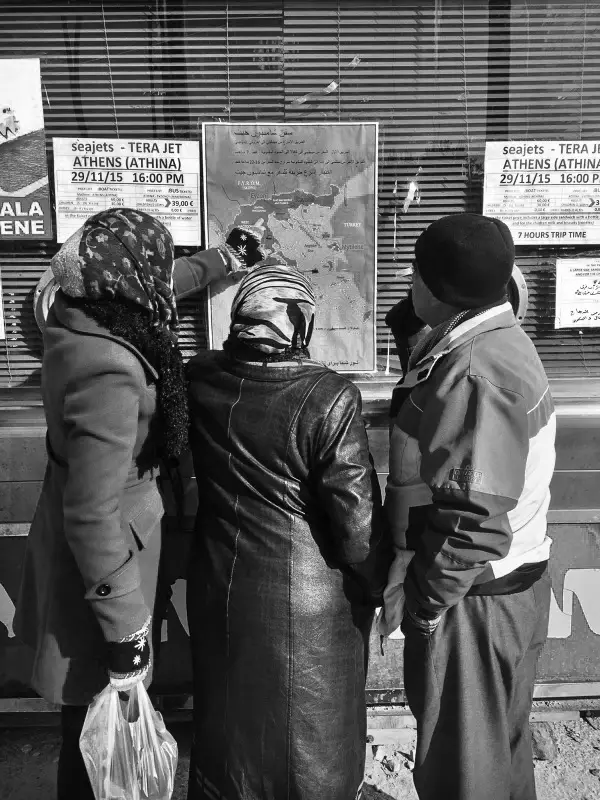As an old (very old) soldier, it is difficult not to be influenced by what is happening and has happened in Ukraine lately. At the same time, I try to keep this blog relatively apolitical, even if it is sometimes difficult.
I have my opinions. These opinions are of course colored by my experiences and my number of years on earth.
When I was stationed in Lebanon in 1982, (a very small country), more than 120,000 soldiers were already standing by along the borders. Little did we know that they would flow over the lands we had in front of us in the days that followed. I will not reproduce these events other than in this way:
It shook us both literally and figuratively. People died, people were injured and the ripple effects persist for several generations later. Both Lebanese, Israelis and we who came from more distant countries to try to keep the peace down there.
We did not succeed.
What we succeeded in doing, however, was for a brief moment to give the people who lived in the areas we guarded a semblance of everyday peace. We created a situation where civilians could live, work, and exist in a seemingly normal everyday life.
We upheld a form of law and order. We prevented kidnappings, arbitrary executions, and abuse.
Then came the war and everything changed.
We prevented kidnappings, arbitrary executions, and abuse.
When I think back on this time, it is not the long days in the scorching heat behind a checkpoint or with weapons in hand that form the memories. My memories are, as always, about the snapshots of scared people, children’s eyes, crying, the smell of anxiety. (Anxiety smells, just ask any soldier)
Glimpses of black wide-open eyes, a mother holding a trembling child, an older man trying to sit as much as possible in the middle of his body and with half-closed eyes displacing what he sees around him, restless men, angry men, full of fear of what happening around them.
Anxiety smells, just ask any soldier.
And the influx of refugees. Bulked Mercedes, old tractors, rusty, old Peugeots, and Toyota pickups on their way south, north, from east to west and vice versa.
Women well hidden under the burka and shawl. Kids with open mouths, dirty faces and silence in every part of the body.
Common to them all are the eyes. Sparkling, open – filled to the brim with everything they have seen and experienced.
I remember the little kid and his donkey, robbed for everything he had hidden. His gear was simple, but I saw that the homemade saddlebags had lots of pockets. The idea was to have these bags filled with goods. When we found him he was robbed. It did not matter who robbed him.
The war was to blame.
I remember the two kids we tried to save after they had set off a mine.
Even though it was the cluster bombs especially that did the most damage. During the invasion, the fighting parties had dropped lots of this type of mines over large areas of the Bekaa Valley. The way cluster bombs worked was that they were put in large containers that were dropped from aircraft bombers. About 500 meters above the ground the containers opened up and spread the activated mines over the area. The mines looked like normal rocks and clumps of dirt, and they detonated when the ground around them vibrated. A human foot, a sheep or even a bird could be enough to set one off. To make the mines effective, the fighting parties had made sure that the mines did not explode when they first hit the ground but jumped a half meter up into the air before they sprayed their deadly shrapnel.
The goal was to hit a person in the stomach. The most vulnerable place. The last we heard, cluster bombs were starting to be made of plastic so that the shrapnel would be impossible to see on an x-ray. A sure and painful death.
There were two of them. Twelve- to thirteen-year-old boys. When we arrived, the soldiers had already been in the mine field and carried both of them out. Now they were lying in front of me.
Their war ended here. Their lifes also.
And I remember the phalangists. And their prisoners.
Eight Lebanese civilians, young boys, grown men, and a couple of older men. Guarded by the Phalangist militia. Heavily armed with US carbines, handguns, and grenades. Everyone was unmasked. Usually, the phalangists wore balaclavas when they would not be recognized. By not doing so we knew that the civilians was on their way to execution.
Fast forward to Lesvos I see a family of four, two adults and two 5,7-year-old kids, losing all they had back in Syria, now on their escape to Europe. Sitting on a Greece shore at night with nothing more than their clothes and each other.
It will never end.
Now it’s Ukraine’s turn. Children, their parents, brothers, sisters, grandparents, friends experience the same
These are the memories I have these days.
As an old soldier.

What is a lifetime, really?
Twenty good years? A good friend of mine once said while walking in the mountains of Gran Canaria.“Knut, we have twenty good years left. Use

How to protect yourself from your PTSD, when the world is on fire
(It is war. And it is mine. ) The headlines that meet me today are about the war in Ukraine. Alarms going off, people fleeing,

The thin film of civilization
The thin film of civilization This picture are taken on Lesvos. Her husband and baby drowned on the way over from Turkey. This is a
